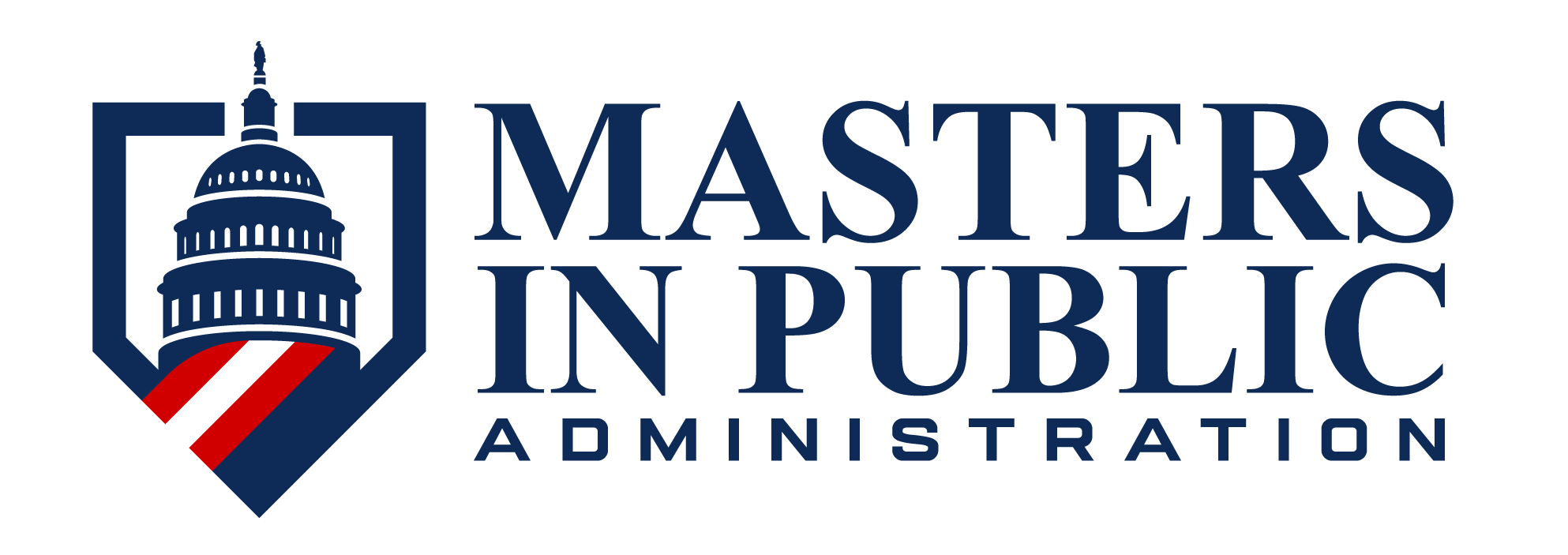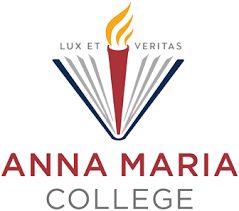Introduction
Choosing to pursue a graduate degree in Public Administration in Massachusetts involves a comprehensive and diverse experience. The state hosts several well-regarded institutions like Harvard University, Boston University, and Suffolk University, each offering practical programs in public administration. Outside the academic realm, students can explore historical landmarks such as the Freedom Trail and engage with the urban life of Boston.
Being in the state capital, Boston, provides opportunities for professional networking with public officials and professionals in various sectors. This proximity enhances the practical application of classroom learning and fosters a deeper understanding of public administration complexities.
Massachusetts features a mix of urban and rural landscapes, offering graduate students varied experiences. This duality allows students to understand public administration in both settings. The state’s innovation-driven economy opens up job opportunities in healthcare, education, and technology, aligning with the evolving landscape of public service.
Massachusetts’ historical significance contributes to a rich tapestry of recreational activities. From exploring colonial sites in Salem to enjoying the scenic beauty of Cape Cod, students can immerse themselves in the state’s heritage. This historical backdrop adds depth to the overall experience and influences how public administration is understood and practiced.
ADVERTISEMENT
Walden University
Online Public Policy and Administration Programs
Walden University’s Public Administration programs are taught by a distinguished faculty of scholar-practitioners, many of whom have senior-executive experience in government and public service. Programs include:
Arizona State University
Online Master of Public Administration (MPA)
ASU’s Online Master of Public Administration provides students with a curriculum that covers leadership strategies, ethical decision-making, and effective management across various organizations.
Liberty University
Online Master of Public Administration (MPA)
Liberty University’s Master’s Degree in Public Administration Online is designed to equip students with a thorough background in the theories and practices essential for success in government and nonprofit roles. MPA areas of focus include:
Southern New Hampshire University
Online Public Administration & Political Science Degrees
Stand up and be counted with a degree in public administration/political science from Southern New Hampshire University—and learn how to facilitate change from within the system. Program offerings include:
The prevalence of local governments in Massachusetts enriches the academic journey. Students can engage with municipal governance, gaining practical insights into the challenges faced by local administrations. This hands-on experience enhances the applicability of theoretical knowledge, preparing graduates for impactful roles in public service.
In essence, being a Public Administration graduate student in Massachusetts is a comprehensive journey that combines a practical curriculum with historical exploration, professional development, and an understanding of local governance structures. The state’s environment provides a dynamic backdrop for individuals aspiring to contribute meaningfully to the field of public administration.
MPA Programs in Massachusetts
Attaining an MPA degree opens doors to fulfilling managerial careers within the public sector, nonprofit organizations, and private entities engaged in partnerships with government officials. In Massachusetts, there are several Master of Public Administration (MPA) programs providing students with opportunities to develop skills in public administration, policy analysis, and leadership. These programs are designed to foster skill development, equipping individuals for impactful careers in sectors where effective public administration plays a vital role.
Aspiring students looking to join MPA programs in Massachusetts can select from various choices. The State of Massachusetts accommodates Public Administration Masters programs at nine different public and private educational institutions. A synopsis of these programs, without regard to accreditation, mode of study, or cost, is accessible here:
NASPAA-accredited MPA Programs
The Network of Schools of Public Policy, Affairs, and Administration (NASPAA), a leading global accrediting body for graduate educational institutions, plays a crucial role in evaluating and accrediting programs like Master of Public Administration (MPA) and Master of Public Policy (MPP) to ensure the highest standards in public administration education. Accreditation involves a thorough assessment of curriculum, faculty qualifications, and program outcomes.
Currently, four institutions in Massachusetts hold NASPAA accreditation for their MPA programs, demonstrating their commitment to quality education and industry standards. This accreditation serves as a reliable indicator for prospective students, affirming program relevance and providing a strong foundation for a career in public administration.
The following is an overview of the four NASPAA-accredited institutions in Massachusetts. Tuition estimates are calculated on a per credit hour basis:
Bridgewater State University
- Bridgewater, MA
- Campus
Modality: On-Campus
Credit Hours: 39
GRE: Not required
Tuition: $502
Program Overview:
The Master of Public Administration program at Bridgewater State University aims to cultivate core competencies in leadership and service within the public and nonprofit sectors. Additionally, the program offers a concentration in public administration, civic, and nonprofit leadership and administration, emphasizing the development of leadership skills, organizational capacity, and a comprehensive understanding of civic and nonprofit organizations. It is important to note that while an MPA degree prepares graduates for public service by focusing on organizational management and policy development, a master’s in public health administration program is specifically geared towards operational management, population health, epidemiology, and community engagement to enhance public health outcomes.
Northeastern University
- Boston, MA
- Campus
Modality: On-Campus
Credit Hours: 40
GRE: Not required
Tuition: $985
Program Overview:
Northeastern University’s Master of Public Administration (MPA) is designed as a management degree for individuals dedicated to serving the public good. Established in 1969, stands as the longest-running program of its kind in New England, ensuring it meets the rigorous standards of the Network of Schools of Public Policy, Affairs, and Administration.This program engages students in interdisciplinary work and applied research in collaboration with government and community partners, empowering them to effectively drive social change and tackle emerging challenges in urban settings. Available both online and at the Boston campus, and expanding to campuses in Arlington, Virginia, and Oakland, California, starting Fall 2024, this MPA offers a unique multi-modality learning experience.
Suffolk University
- Boston, MA
- Campus
Modality: On-Campus
Credit Hours: 42
GRE: Not required
Tuition: $1,322
Program Overview:
Suffolk University offers a distinguished learning experience where students benefit from faculty with extensive public service experience and academic expertise. The faculty, a blend of full-time and adjunct members, actively engage in research, securing grants to explore and publish on topics such as public safety, public budgeting, labor law, and education policy. Suffolk’s well-rounded faculty, both academically and professionally qualified, prepares students to enhance the responsiveness, efficiency, and effectiveness of public service organizations. The university places graduates in management and leadership roles across federal, state, and local government, nonprofit agencies, private sector organizations, and the prestigious Presidential Management Fellowship program.
University of Massachusetts at Boston
- Boston, MA
- Campus
Modality: On-Campus
Credit Hours: 36
GRE: Not required
Resident Tuition: $807
Non-Resident Tuition: $1,575
Program Overview:
UMass Boston’s MPA program equips students with the essential skills and knowledge to lead and manage public programs effectively. Covering budgeting, finance, economics, ethics, organizational behavior, politics, and statistics, the program prepares graduates for leadership roles in government, public agencies, and nonprofit organizations. Recognized by U.S. News & World Report as the #69 MPA program in the nation, UMass Boston maintains strict NASPAA accreditation. Additionally, the program offers a specialized Gender, Leadership, & Public Policy Track. Graduates gain analytical, technical, and leadership skills, positioning them for careers in various fields, including administration, finance, criminal justice, economic development, education, environmental management, healthcare, housing affairs, human resources, information technology, labor management, transportation, and urban affairs.
ADVERTISEMENT
Walden University
Online Public Policy and Administration Programs
Walden University’s Public Administration programs are taught by a distinguished faculty of scholar-practitioners, many of whom have senior-executive experience in government and public service. Programs include:
Arizona State University
Online Master of Public Administration (MPA)
ASU’s Online Master of Public Administration provides students with a curriculum that covers leadership strategies, ethical decision-making, and effective management across various organizations.
Liberty University
Online Master of Public Administration (MPA)
Liberty University’s Master’s Degree in Public Administration Online is designed to equip students with a thorough background in the theories and practices essential for success in government and nonprofit roles. MPA areas of focus include:
Southern New Hampshire University
Online Public Administration & Political Science Degrees
Stand up and be counted with a degree in public administration/political science from Southern New Hampshire University—and learn how to facilitate change from within the system. Program offerings include:
Online MPA Programs
Choosing an online-only MPA program in Massachusetts as an MPA graduate student comes with practical benefits. The flexibility of online learning allows you to attend classes from any location, making it easier to manage travel or existing work commitments. This adaptability is particularly helpful for those balancing professional responsibilities, seamlessly integrating academic pursuits with work demands.
The online format accommodates various learning styles and schedules, making it more convenient for students to balance studies with personal and professional obligations. Moreover, the accessibility of online courses removes geographical constraints, enabling individuals across the state to access quality MPA education without the need to relocate. In summary, an online-only MPA program in Massachusetts offers convenience, adaptability, and accessibility, providing graduate students with a straightforward and efficient educational experience.
Online MPA programs often incorporate real-world scenarios, letting students apply their learning directly to local contexts, enhancing the practical relevance of their education. Overall, the convenience and adaptability of an online MPA program align well with the varied opportunities and lifestyles present in the State of Massachusetts.
In the State of Massachusetts, three MPA programs offer a fully online learning option, one of which is accredited by NASPAA. Additional information on the two unaccredited programs can be found here:
Anna Maria College
- Paxton, MA
- Online
Credit Hours: 36
GRE: No
Tuition: $719 (per credit)
Program Overview:
Anna Maria College’s online Master of Public Administration (MPA) program empowers students to lead and manage, fostering lasting societal changes. Recognized as the professional credential for public service professionals, the MPA is crucial for elected and appointed officials across various government levels. The 30 to 36-credit hour curriculum prepares students to excel as managers in the executive arms of local, state, federal, and nonprofit sectors. The program accommodates up to six transfer credits, allowing for graduate coursework or real-life professional experience. The Mid-Career Track option, available for qualified graduates of police or fire academies, permits the substitution of experience for up to six credits, streamlining the course load.
Clark University
- Worcester, MA
- Online + Campus
Credit Hours: 30
GRE: No
Tuition: $1,034 (per credit)
Program Overview:
His program at Clark ensures you earn an in-demand credential, addressing the increasing preference for master’s degrees in leadership positions across government and nonprofit organizations. With retirements in the public servant ranks creating opportunities at all levels, the Clark MPA positions you to bring foundational skills and fresh insights to local, national, and global organizations. The curriculum combines academic rigor with real-world application, providing solid training in research methods, public management, public affairs, nonprofit leadership, marketing, and management. The Capstone project allows you to showcase your knowledge and professional competencies as you address challenges faced by a “real-world” organization.
Accelerated MPA Programs
In Massachusetts, completing a Master’s in Public Administration (MPA) degree typically takes 2-3 years for full-time students and 3-4 years for part-time students. However, certain programs in the state provide accelerated and dual-track options, allowing students to expedite their degree completion.
Opting for an accelerated track MPA program in Massachusetts comes with notable advantages. The condensed time frame not only ensures a quicker attainment of the MPA degree, making it a cost-effective and efficient choice, but also proves beneficial for individuals looking to swiftly enter or advance within the field of public administration.
Navigating Massachusetts’ varied administrative landscape, which includes both urban centers and rural areas, is simplified through this accelerated program, enabling a prompt response to regional challenges. Additionally, the accelerated pace enhances the immediacy of applying acquired knowledge to real-world scenarios, amplifying the practical relevance of the education received. This tailored approach aligns with the dynamic needs of Massachusetts’ administrative environment, providing students with a swift and impactful trajectory towards their MPA goals.
For example, the MPA program at both Northeastern University and Suffolk University are normally completed in two years (for on-campus students), but both offer an accelerated program for students that stack their classes in a full time curriculum, allowing them to complete the program in as few as three semesters.
Furthermore, both Clark University and Harvard University allow accelerated combined degree options. At Clark University, students can combine their undergraduate and graduate tracks to finish both degrees in only five years. At Harvard, students can combine their graduate degree with another focus (law, policy, and others), to finish them concurrently for a double degree.
Affordable MPA Programs
Affordable tuition is crucial for students pursuing a Master of Public Administration (MPA) degree in Massachusetts, as it significantly impacts accessibility and inclusivity in the field of public administration. Many aspiring public administrators seek advanced degrees to improve their skills and contribute meaningfully to society.
Affordable tuition reduces financial barriers, allowing a more diverse group of students, including those from different socio-economic backgrounds, to access quality education. This fosters a diverse learning environment, bringing together perspectives from different walks of life and contributing to a more comprehensive and representative public administration workforce. The emphasis on affordability not only makes advanced education accessible to a wider audience but also supports the principles of equity and inclusion, essential for the effectiveness of future public administrators.
For example both Bridgewater State University and Northeastern University are NASPAA-accredited universities that offer tuition for both state residents and non-residents under $1,000 per credit hour ($502 and $985, respectively). Suffolk University also offers competitive tuition as a NASPAA-accredited institution at $1,322 per credit hour.
Anna Maria College and Westfield State University also offer competitive tuition rates. Anna Maria College’s full online option offers tuition at $719 per credit hour. Westfield State University offers tuition at only $398 per credit hour for on-campus students.
All MPA Programs in Massachusetts
What Types of Careers Can I Pursue With an MPA Degree in Massachusetts?
In Massachusetts, holding a Master of Public Administration (MPA) degree opens doors to a range of rewarding careers across various sectors. Graduates can find opportunities in state and local government agencies, nonprofit organizations, healthcare institutions, educational institutions, and private entities collaborating with the public sector. Public administrators with an MPA often take on roles such as city managers, policy analysts, program managers, or executive directors in nonprofit organizations.
One unique aspect of pursuing an MPA career in Massachusetts is the state’s prominence in healthcare and education. Graduates may find themselves contributing to healthcare policy development, managing public health initiatives, or overseeing educational programs. Massachusetts’ vibrant innovation and technology sectors also offer opportunities for MPA graduates to engage in public-private partnerships, working on projects that drive economic growth and community development.
Several influential public officials in Massachusetts have earned MPA degrees, contributing to the state’s dynamic governance. For instance, Thomas Menino, the longest-serving mayor of Boston, held an MPA degree from Boston University. His leadership and transformative policies left a lasting impact on the city. Additionally, Jay Gonzalez, the former Secretary of Administration and Finance for Massachusetts, holds an MPA from Harvard Kennedy School, showcasing how MPA graduates play key roles in shaping the state’s fiscal policies and public administration.
Moreover, Massachusetts has been home to MPA-educated public administrators who have excelled in areas like environmental policy. Mary Griffin, the former Commissioner of the Massachusetts Department of Fish and Game, holds an MPA and has been a key figure in environmental conservation efforts in the state.
In conclusion, an MPA degree in Massachusetts opens avenues for diverse and impactful careers, with opportunities in healthcare, education, technology, and environmental policy. The state’s history includes notable public officials who have shaped governance with their MPA education, demonstrating the enduring influence of MPA graduates in Massachusetts’ public administration landscape.
- Healthcare Policy Analyst: Work with state agencies or healthcare organizations to analyze and contribute to healthcare policies, addressing the unique needs of Massachusetts’ robust healthcare sector.
- Education Program Manager: Manage and enhance educational programs within the state’s reputable educational institutions, focusing on curriculum development, student services, and community engagement.
- Nonprofit Executive Director – Social Services: Lead nonprofit organizations addressing social issues within the state, overseeing initiatives related to poverty alleviation, homelessness, or community development.
- Environmental Sustainability Coordinator: Collaborate with state agencies or environmental organizations to develop and implement sustainable practices, addressing Massachusetts’ commitment to environmental conservation.
- Public-Private Partnership Specialist: Facilitate partnerships between government entities and private organizations, contributing to economic development and community growth initiatives unique to Massachusetts.
- Government Relations Manager: Navigate the complex legislative landscape by representing organizations in their interactions with state and local governments, influencing policies and regulations.
- Crisis Management and Emergency Preparedness Coordinator: Work with state agencies or municipalities to develop and implement crisis management plans, ensuring preparedness for natural disasters, public health crises, or emergencies.
- Technology and Innovation Policy Advisor: Contribute to the state’s innovation ecosystem by advising on policies that promote technology and entrepreneurship, fostering economic growth and job creation.
- Public Health Program Director: Lead public health initiatives, collaborating with state health departments or nonprofit organizations to address health disparities and promote community well-being.
- Transportation Planner: Work with state agencies to plan and develop transportation infrastructure projects, contributing to the state’s efficient and sustainable transportation system.


















